- Amit Waikar, Managing Director of Döhler ASEAN was one of the youngest winners of Pravasi Bharatiya Samman for his outstanding achievements in business and cosmopolitan initiatives.
- China’s focus on creating facilitating infrastructure funded by Government even from the 80s has led to growth in FDI and industries
- India holds huge scope in developing its flavours and fragrances industry
Amit Waikar represents a generation of a self-driven spirited individual who went on to make a mark in the high echelons of the Indian corporate world with a value that is fundamentally Indian yet cosmopolitan. Presently the Managing Director – ASEAN at Döhler Group, Amit Waikar wears his accomplishments with an air of disarming honesty while his innate verve makes a definite impact. He is also one of the youngest winners of Pravasi Bharatiya Samman.
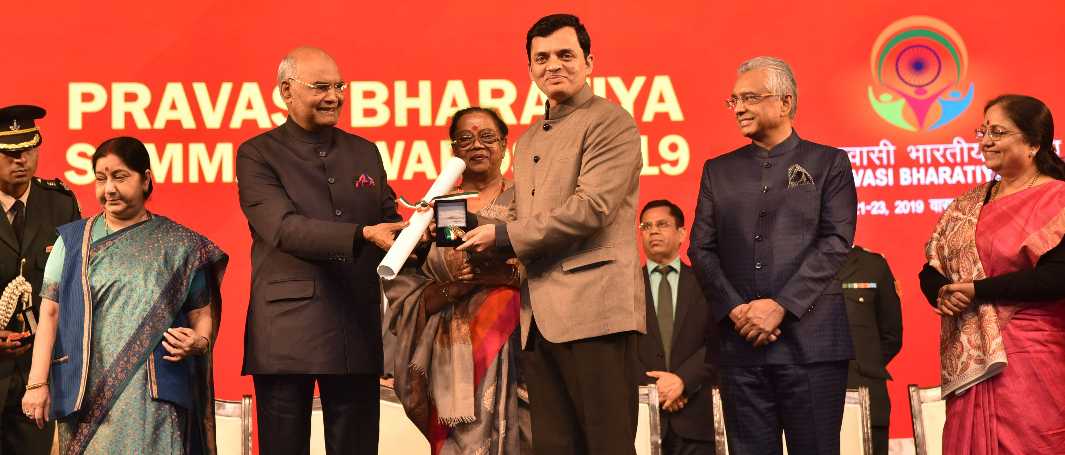
Amit Waikar grew up in the ‘erstwhile small town’ Nagpur, which set his outlook towards life and to make a difference without being forcefully so. The formative years were honed by the presence of his father, Dr Vinay Waikar, an ex-army man and the second anesthesiologist in Nagpur. “What you do for a career or what you do for a living is important, but that should not define you the way you are, instead what matters is the legacy one wants to leave behind”, Amit maintains.
Urkoon Taka: Building Fundamentals
Born to a family of doctors, with his mother Dr Vina Waikar being a well-known gynaecologist and two elder sisters practising medicine, Amit developed anguish for studying medicine and also ‘rebelled’ with the idea of becoming an engineer. After passing out from one of the most prestigious schools in Nagpur when Waikar enrolled for a BSc degree in Environmental Science with English Literature as an additional subject, he was met with little resistance from his broad-minded parents. Though on one occasion on his mother’s bidding, his father took Waikar to meet Dr Shrikant Jichkar – the man holding the record for maximum degrees, and then Home Minister of Maharashtra. The idea was to get Amit admitted to a medical college which did not work out finally.
Amit Waikar remembers, “BSc or BA, I had no clue of what I wanted to do.” Amit met his future wife Aparna, who motivated him for enrolling in MBA, and Amit completed his MBA in Nagpur. At this point, Amit admits his “friend, philosopher and guide” Dr Shrikant Shorghore, a well-known paediatrician in Nagpur offered to write a letter of recommendation to someone he knew in Mumbai for Amit’s job opportunity. Dr Shrikant Shorghore also advised Amit to follow the Marathi “Urkoon Taka” principle which means “to get things completed”.
From International Flavors & Fragrances to Döhler
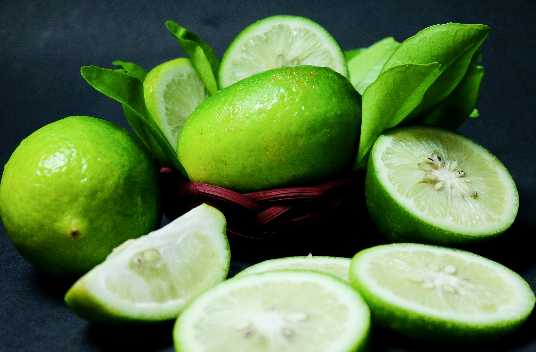 The gentleman Dr Shorghore had sent the referral was Sunil Doronde, the Managing Director of International Flavors & Fragrances (IFF). It was 1992, the Indian economy was opening up to welcome MNCs, and with no idea about flavour and fragrances segment, Amit Waikar joined IFF as Market Research Executive. Amit explains, “When people think of flavours and fragrances, people think of fine fragrances associated with brands like GUCCI, PRADA, CK and the rest. But that is only ten per cent of the segment. Ninety per cent of it is about fragrances for soap, detergent, talcum powder and that makes up for the bulk.
The gentleman Dr Shorghore had sent the referral was Sunil Doronde, the Managing Director of International Flavors & Fragrances (IFF). It was 1992, the Indian economy was opening up to welcome MNCs, and with no idea about flavour and fragrances segment, Amit Waikar joined IFF as Market Research Executive. Amit explains, “When people think of flavours and fragrances, people think of fine fragrances associated with brands like GUCCI, PRADA, CK and the rest. But that is only ten per cent of the segment. Ninety per cent of it is about fragrances for soap, detergent, talcum powder and that makes up for the bulk.
There is a complete set of companies not known to many for they, being on the B2B side, including the famed S.H.Kelkar & Co. Ltd. a third-generation India brand.” Amit Waikar’s progression in IFF began when he was given the responsibility of key account manager of Hindustan Lever Limited, managing the account for India and subsequently for Bangladesh, Nepal and Sri Lanka. All this while, Amit was learning the nuances about fragrances, the technicalities and its business.
After a little more than four years with IFF, Amit Waikar was approached by Döhler for the position of Regional Sales Manager. The following years saw Amit Waikar managing accounts for India and South East Asia and two-and-half years at Döhler headquarters in Germany. This followed what Amit Waikar mentions as “a wonderful stint of eleven years in China.”
The Great Wall of China: Mixed Bag of Learning & Leadership
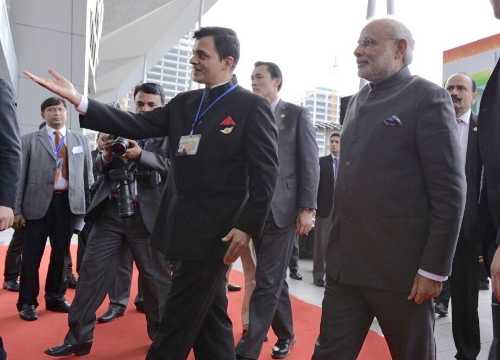 Arriving in Shanghai, Waikar started by managing the global accounts of the Asia Pacific region for Döhler and, he is today operating from Bangkok leading the ASEAN market as its Managing Director. Amit Waikar says, “The experience is never less than exciting. I think there is a lot of action that is going to happen in the ASEAN market. There will be pockets of extremely high growth and every market has its dynamics. This is going to be a mixed bag of learning, leadership and dealing with unique challenges.”
Arriving in Shanghai, Waikar started by managing the global accounts of the Asia Pacific region for Döhler and, he is today operating from Bangkok leading the ASEAN market as its Managing Director. Amit Waikar says, “The experience is never less than exciting. I think there is a lot of action that is going to happen in the ASEAN market. There will be pockets of extremely high growth and every market has its dynamics. This is going to be a mixed bag of learning, leadership and dealing with unique challenges.”
Amit’s stay in China was not just all about corporate leadership and business growth. One aspect that set Waikar apart from the rest was his significant role as a community builder and supporter of the Indian community in China. Essentially a humanist, he was conferred the Pravasi Bharatiya Samman Award, the highest honour conferred on overseas Indians by the Ministry of External Affairs, Government of India. Amit Waikar’s instance is also unique in a certain way, as he was not nominated by Indian Embassy from China and he being the first Indian to be awarded this distinction from mainland China. The journey to this height began when Amit Waikar started attending the events of the Indian Association in China.
Amit Waikar remembers, “While attending these events which were grand and spectacular, I sensed something still amiss. Probably it is my Nagpur upbringing; I intuitively felt the absence of connection with the community. They were all typically elite events where the common Indian living in China never felt to be part of such association. After one such event on our drive back home, I disclosed my concerns to my wife Aparna. She made a point for me to become an active change-maker instead of being on the sidelines and complain about the shortcoming.” Aparna Waikar’s assertion stayed on with him.
Indian Association for Indians in China
So after a couple of months, not even being a board member of the association, he nominated himself in the election for the president’s post. His friends played a key role and went for canvassing to the members of the Indian community who were not yet a part of the association and they became members just to vote for Amit. His vision for making the Indian Association accessible to every single Indian in China for any and every kind of concern and aid was widely felt like a primer to a change. The year was 2013, Waikar was elected the president of the Indian Association.
During his tenure, Amit Waikar successfully initiated the blood donation campaigns, a rather uncommon social practice among Chinese people. This very Indian ethos was put to action and Indians donated blood for the Chinese people, a mark of service to their host nation and present India’s time-honoured eternal ideal of “Vasudaiva Kutumbakam”. Cricket tournaments, Diwali celebrations and cultural programs were planned with the distinctive Indian cultural feel.
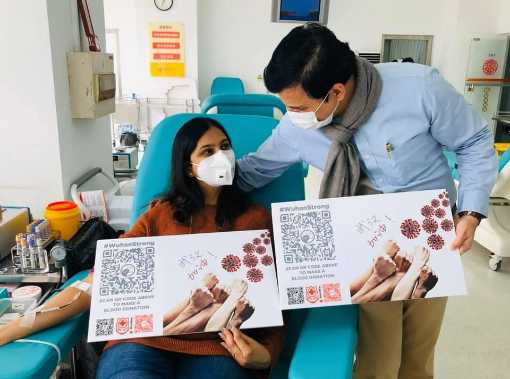
In 2015 Amit received a call from The Hon’ble Counsel General asking for the Indian Association to host a community event during the forthcoming visit of The Hon’ble Prime Minister of India, Shri Narendra Modi. Amit Waikar connected with the community through the network he had built and all Indians were excited and involved themselves to give Modiji a grand welcome.
The challenge was to bring all Indians in China together, which under the leadership of Amit Waikar, from a count of seven hundred, seven thousand Indians were waiting to greet The Prime Minister of India, at the iconic Shaghai Expo Centre on 15th May. Amit Waikar, being at the helm of this civic reception, received Modiji, greeted him and introduced the members of the Indian Association to The Prime Minister. It was not just connecting Indians in Shanghai but also about Indians from other cities and districts of China.
In 2019 Amit Waikar was awarded Pravasi Bharatiya Samman at Varanasi, for his contributions for building a strong Indian community in China. The Indian Association in China works towards understanding problems and providing social, legal, medical and institutional support to every Indian individual living in China even in the remotest of cities. The foundation to such activities was cemented during Amit Waikar’s tenure and today he continues to be a senior board member of The Indian Association.
Biggest Political Enemies & Largest Economic Partners
Talking about the business lessons from China, Waikar notes, “Firstly, China has built an entire universe of manufacturing through an amazing way what the world calls ‘copying’, but China calls it ‘inspiration’. So even in the eighties and nineties, there were the so-called innovation centres, research labs that were set up. They were entirely government-owned where a product or component was completely dismantled with the objective to understand the technology, and the information gathered was given free of cost to the entrepreneurs to develop it further.
Secondly, at that point in time, the funding for manufacturing business was easily available. Thirdly, when China opened its economy and welcomed FDI, they had the infrastructure made readily available, not that the infra was developed alongside or afterwards. So, what was claimed was not mere words but actions, investors took no time to channel the funds to China.”
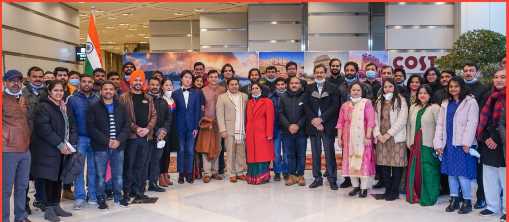
Another important thing to understand about China is that it operates as an organization. Amit Waikar says that the system is such that every five years, each provincial head of China requires to present results in terms of employment generation, getting companies involved or getting the infrastructure and network more robust. Amazing power in decision making is also given to the authorities to meet their respective goals. Waikar adds, “China is all about clusters. There is a cluster for each segment like there are clusters for automobile, chemical, rubber, furniture etc. This results in an area where twenty to thirty companies producing same products with a consolidated infrastructure of the workforce, technology, suppliers and OEMs.”
But the great learning Amit had in China is that “its biggest political enemies are its largest economic partners”. He cites the example of economic and trade cooperation between China and Japan or even the same with its trade ties with Taiwan and the USA. The fundamental idea is to keep the economic growth of the nation despite the political differences.
Speaking of the opportunities of the Indian companies in China, Amit Waikar observes, there is ample opportunity for Indian iron ore, coffee and similar products, spices, fisheries and fruit products. He says, ”Another aspect one should never forget is the Indian skill and talent pool. Indians leading China’s pharmaceutical companies is a case in the point.”
And finally, Amit Waikar draws attention to the fact that all MNCs are now having China-Plus-One policies triggered by SAARs and, now COVID19. The idea is to establish one or two non-Chinese locations for manufacturing. “Are we ready to offer tangible support to welcome those MNCs?” Amit wonders. But being a firm believer of vision, foresight and commitment Waikar is confident that it quite possible for India to achieve these goals.
Huge Opportunity for India: Fragrance & Flavor Industry
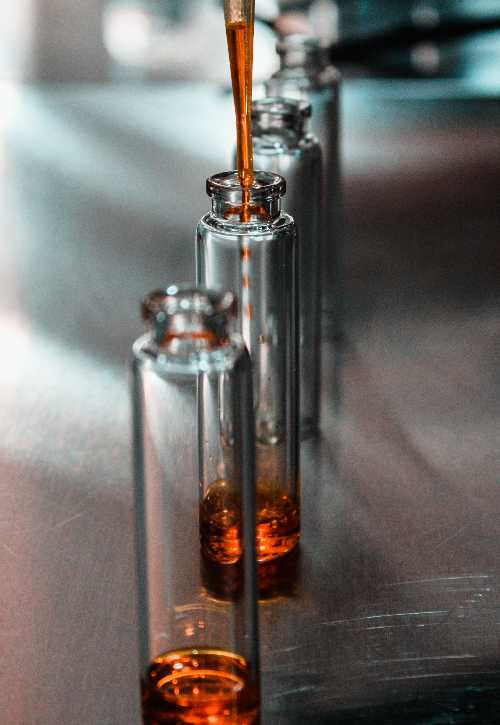 Speaking of the industry Amit Waikar has dedicated his career, Fragrance and Flavor or F&F as it is commonly known, he says, “Though it is not a well-known segment in India, the industry is quite big, very well managed and an industry driven by professionals. India always had a legacy of fragrances, but it was never an organized one. After the economic liberalization in the nineties, F&F got a major boost. So today all the F&F leaders of the world like Givaudan, Firmenich, Symrise and IFF and many more are actually manufacturing their products in India and generating employment.”
Speaking of the industry Amit Waikar has dedicated his career, Fragrance and Flavor or F&F as it is commonly known, he says, “Though it is not a well-known segment in India, the industry is quite big, very well managed and an industry driven by professionals. India always had a legacy of fragrances, but it was never an organized one. After the economic liberalization in the nineties, F&F got a major boost. So today all the F&F leaders of the world like Givaudan, Firmenich, Symrise and IFF and many more are actually manufacturing their products in India and generating employment.”
Amit Waikar feels there is a need to train people in the field of F&F at the university levels. The bulk of F&F is associated with beverages and fruit juices. China is presently supplying eighty per cent of chemical products that goes into making finer fragrances in F&F. “India holds a major potential to start the processing of fruit juices. The focus should be on fruit cultivation and processing. There is a scope for the Indian entrepreneurship to take F&F in beverages to the global level is huge indeed”, Amit Waikar explains.
All the while in the world of business and trade, Amit Waikar works to give back to the society that has nurtured him to be the man he is today. With active support from his family and friends, he is associated with Deepstambh Foundation in Jalgaon where the plan is to build Asia’s largest hostel and training centre especially for the differently-abled, the tribal people and the socially marginalized children above eighteen years of age and train them to be leaders of future. “And this has helped me to answer the unfounded criticism about my Motherland that it is land of potential and no actualization. I have at least participated to bring about a change however minuscule it may be,” reflects Amit Waikar.


